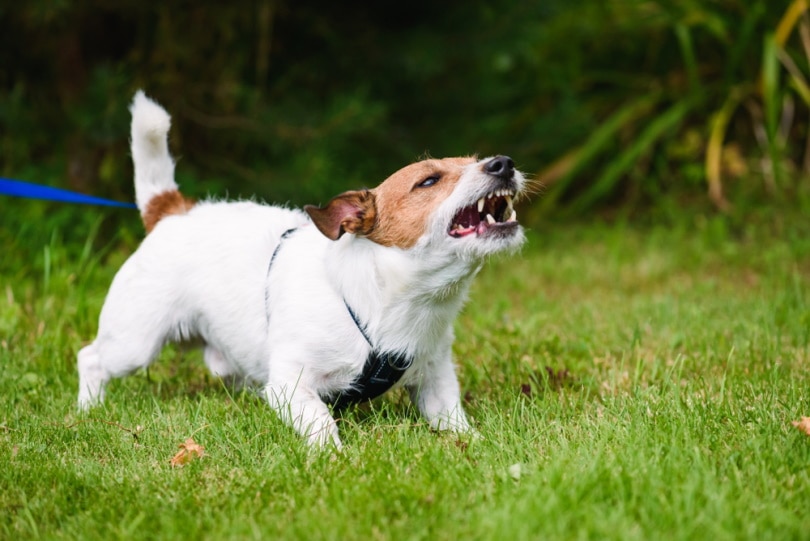Choosing the perfect dog can be difficult. Everyone has a different situation, and each situation will benefit certain dogs better than others. This leads people to research which dog breeds could be a good fit for them and their families. People have long-held beliefs that some dogs are friendlier than others, more protective than others, or more playful than others. Is that true? Does a dog’s breed determine their behavior?
The short answer is: only to a certain extent. Up until recently, that question was hard to answer with confidence. But now, thanks to a new study, science can help illuminate the issue

Old Assumptions
The old assumption was that a dog’s breed had a lot to do with their ultimate behavior and personality. Many people picked dogs based on perceived traits that came with that dog’s breed. Even today, the American Kennel Club still maintains that a dog’s breed has a very high correlation with their behavioral traits. These traits have been used for marketing and selling certain types of dogs. Some breeds are supposedly better than others at protecting their owners, and some breeds are marketed as being good with kids.
These assumptions are still a large part of the zeitgeist when it comes to the average understanding of dogs. However, thanks to a new verified study, those correlations are not as strong as once believed. Instead of having a high correlation between breed and behavior, the new data suggests that there is very little correlation between a dog’s breed and their behavior.

New Data
In a recent study posted in Science Journal, researchers conducted a wide survey of dogs to determine whether a dog’s breed had a significant impact on behavior.1 The study surveyed 18,385 individual dogs and split the survey between purebred dogs (49%) and mixed dogs (51%). The study also ran genetic testing on 2,155 dogs, using DNA sequencing to get a better picture of the survey results. The study found that despite previous preconceived notions, a dog’s breed had very little significant correlation to their overall behavior.
The results of the study found that just 9% of behavior can be connected to the dog’s breed. That means that 91% of behavior is the result of other factors, such as upbringing, training, environmental conditions, and trauma. A dog’s overall life experience is a much better predictor of their behavior than their breed, especially when coupled with their natural personality (which is also not connected to their breed.)
Common behaviors like playfulness, obedience, and responsiveness are not connected to a dog’s breed. This is in stark contrast to a dog’s appearance, which is almost entirely connected to their base DNA. For example, it is possible to selectively breed for traits like a long coat or floppy ears. This has made people think that behavioral traits can also be selectively bred, but that does not seem to be the case.
Data vs. Anecdotal Evidence
This new data helps illuminate concepts that were previously dominated by anecdotes. Many conversations and understandings about dog breeds have been backed up by anecdotal evidence from individual dog owners and breeders. For example, a person who has ever owned Boston Terriers might claim that they all exhibit certain behaviors.
Dog breeders will often also ensure potential customers that the dogs they are considering will behave the way that they want. These types of interactions are still very common, and until now, they were hard to refute because there was no hard data to say otherwise. The study posted in Science Journal in April 2022 is the most recent and largest study of its kind and adds appreciable data to the debate about dog breeds and dog behavior.
When researching a dog breed and attempting to make a decision that is right for you and your family, you’ll need to weigh the data and the anecdotes together. It is also important to realize that not all anecdotes are true or indicative of overall behavior and that some people are biased actors and speakers. Dog breeders, for example, have a vested interest in keeping you interested in their puppies in order to close a sale and make money.


Conclusion
The previous belief was that a dog’s baseline behavior and their breed were tightly linked. However, new data works against these preconceptions. A large study showed that just 9% of a dog’s overall behavior is linked to their breed. That means that a dog breed can be associated with particular behavioral traits, but it will be a very small part of their overall personality.
These results will likely not deter people who like to spread anecdotes about the behaviors of certain dog breeds. Nor will it deter dog breeders from marketing specific breeds in association with certain behaviors, which is something to keep in mind when researching breeds.
Featured Image Credit: Josh Sorenson, Pexels



















